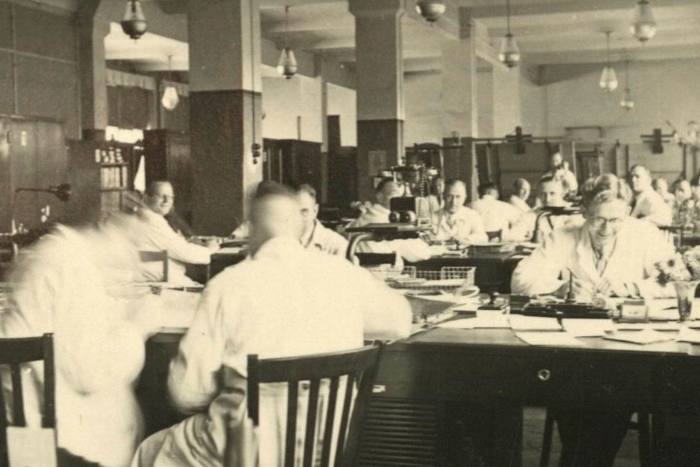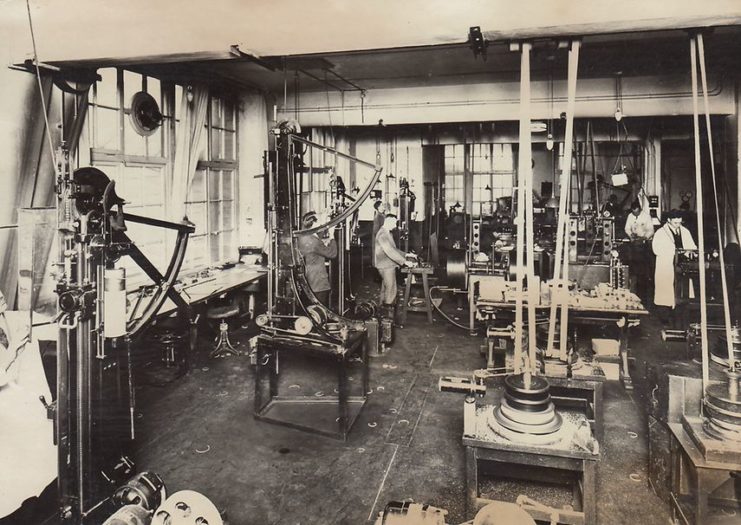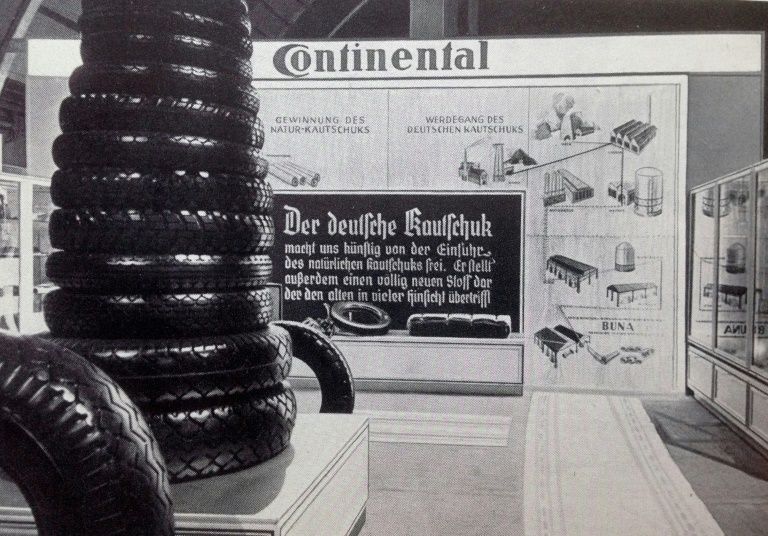The German tire company Continental has admitted that it used slave labor during World War II in order to test the quality of their rubber-soled boots.
The company stated that prisoners at the Sachsenhausen concentration camp were forced to walk around a large gallows until they had walked up to 25 miles each day. Prisoners who fell down or refused to walk were shot.
The details came to light after the company did an internal review in order to come to terms with its past and make amends for its past actions.

At the time, Continental was the world’s largest producer of rubber materials. It was a major supplier for the Nazi military during the Holocaust.
Historian Paul Erker was given the task of researching the company’s past relationship with the Nazi party. He said that the company became a “pillar” in the Nazi war machine.
Continental’s chief executive officer, Elmar Degenhart, said that the company was an “important part” of the Nazi war effort.
Rubber shoe soles were one of the products produced by Continental in the 1930s and 1940s. It became a prominent supplier of shoe soles to the military.
The shoes were tested at Sachsenhausen near Berlin. Prisoners were forced to walk between 19 and 25 miles every day while wearing the boots with Continental rubber soles.
Continental required forced marches even in snow and ice. Some prisoners walked as many as 1,400 miles during the testing.
Company management was actively involved in the forced marches but few were arrested for their part in the violations of human rights.
Degenhart said that the review was commissioned in order to gain more clarity about a dark time in the history of the company.
The company is presenting the report as a lesson. Originally formed in 1871 as a consumer and leisure company, it bowed to pressure from the Third Reich and became an armaments company.
Ariane Reinhart works as a human resources executive at Continental. She said that the report shows how corporate culture can be bent under pressure from political regimes and social influences.

The company intends to use the report in future training sessions.
Degenhart called the investigation into the company’s past a starting point for discussions about the social responsibility of a company. They intend to seriously consider the outcome of those discussions as they adjust their corporate strategy.
Other German companies have made similar reviews of their past ties to the Nazi party and their part in the horrors of the Holocaust.
Volkswagen was founded in 1937 as a state owned company by the Nazis. It has been commended for hiring an in-house historian to uncover the atrocities the company participated in. More recently the company has owned up to its relationship with the dictatorship in Brazil.
BMW, Deutsche Bank, Siemens, Mercedes-Benz, ThyssenKrupp and IG Farben are other German companies that benefited from close ties with the Nazi party.
Another Article From Us: Live Like a Bond Villain, 3 Remote Napoleonic-Era Forts For Sale
IG Farben manufactured the poison gas used in many of the concentration camps as part of the “Final Solution” for the Jews. It was eventually broken up into Bayer and BASF.
